The Germans went around the system, looking into his mouth and pulling out gold crowns
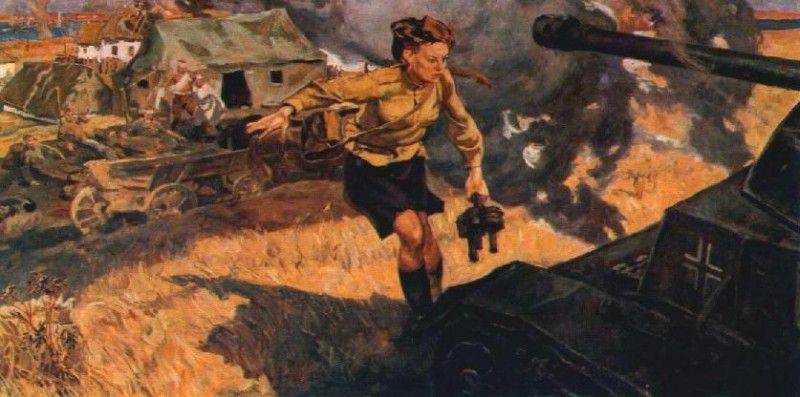
And again I write about women's destinies. After all, she’s a woman, and I’m trying to find for myself those islands of courage and fortitude in women's destinies, scorched by war and severe trials.
Emma Vasilievna Kondrashina, a resident of the Romanovskaya stanitsa, is 78, but she still maintains optimism, enthusiasm and a sense of humor. Talking with her is a pleasure, she remembers a lot from the past.
On June 22, the Kondrashin family celebrated the birthday of their youngest daughter Emma, and then, like a bolt from the blue, the news of the attack of Nazi Germany on the Soviet Union. On August 1, the head of the communist family Vasily Kondrashin went to the front. Fate favored him. Vasily Romanovich fought in tank troops, survived the fierce battles and returned at the end of 1946, having many awards, albeit wounded. The eldest daughter of the Kondrashin's Maria is a participant in two wars: the Great Patriotic War and with Japan.
In the autumn of 1942, three families — the Kondrashins, Lysovs, and Karshins, already aware of the atrocities of the fascists against the local population, were evacuated under Elista.
Natalya Kondrashina settled with her two daughters, Inessa and Emma, in a dilapidated shed near the Jewish settlement.
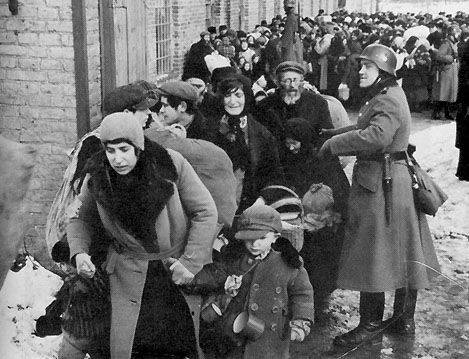
- I have always maintained respect for our people for their willingness to help strangers at a difficult time. In the evacuation, we went with what could carry in the bundles. The main thing - there was no food. Survived by collecting spikelets in the field, and even brought milk, bread, cakes. In our barn they made an old trestle bed, the window was glazed with a piece of glass. Sister Inessa, she is two years older than me, often went to the village, made friends with the children, - says E.V. Kondrashin.
About a month later, the Germans drove into the village on motorcycles like a business. All things were taken away from the population, although then they threw away a lot of things as unnecessary, made up lists for sending allegedly to work in Germany. A few days later, everyone, young and old, was gathered into a column and led to a beam outside the village.
The path lay past the shed of the Kondrashin and they heard the Jews shouting: "Do not believe the Germans, run!" Having built a column along the beam, the Germans methodically bypassed the formation, looking into everyone's mouth and pulling out gold crowns. Natalya Vasilyevna tried to tear Emma from the window, which saw everything, and she was trembling, but the stubborn girl continued to watch what was happening.
- Having pulled out their teeth, the Germans began to smear something under the nose of their children and push them into the beam. The adults were shot, ”recalls Emma Kondrashin,“ then people were thrown at the ground, and everything was quiet. It was in the afternoon, and in the evening a heart-rending groan came from the ground. Nothing more creepy to hear in my life did not have to. And I also never experienced such fear.
In the middle of the night, three families from the Romanovskaya stanitsa got together and, accompanied by moans and shouts from the ground, went to their native stanitsa. Here, too, were the occupiers, the hut plundered.
When airplanes appeared, Natalia Vasilyevna hid her daughters in the cellar, for fear of bombing.
When it was quiet, they were sent along with others to collect acorns, chakana, licorice, which were eaten.
Once a soldier approached the sisters Kondrashin, stroked the heads, saying: "Kinder, kinder," then he showed two fingers, poked himself in the chest, repeating: "Tsvayn kinder." The girls understood what was being explained to them, but this did not touch children's hearts, like donated sweets and souvenirs. Emma V. admitted that the rejection of the Germans she has remained for life. At school, she refused to learn German, for which she was expelled from school for two weeks.
“War is scary.” Transmissions on TV, where they talk about events in Ukraine, I can not watch. And without that I often see in a dream how Jews are shot and hear their cries. From the war in Ukraine it is doubly painful, because there is no love and friendship between the native people - the Slavs. I have one daughter-in-law - a Polish girl, another Tatar, a Ukrainian son-in-law. And what should we share?
Weeds on the field cleaned the fragile hands of girls
For those who worked in the rear during the Great Patriotic War, the phrase "Bread, poured after" is not just words. It’s hard for us now to imagine how weeds can be weed out manually on the rye or wheat field. It has long been accustomed to the "chemistry" doing an excellent job with this matter.
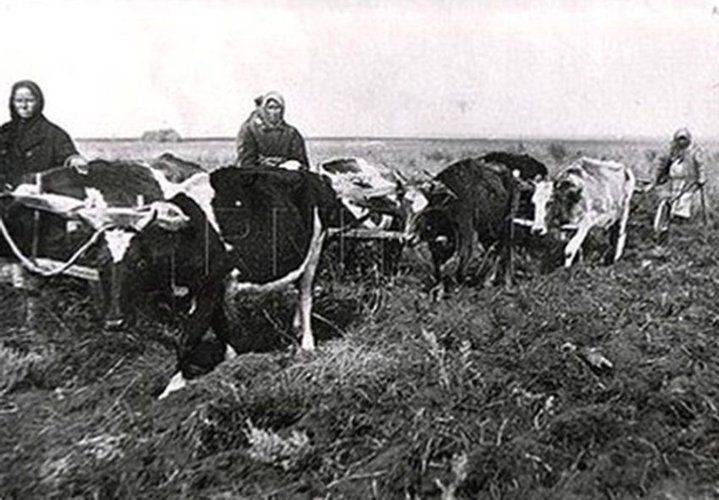
- During the war, we bread weeded under the scorching sun, bowing to each blade of grass, - says 88-year-old Nina Molchanova. - It was not easier in the vegetable plantations. Planting, weeding, watering - all fell on the shoulders of women and children. But no one complained, realizing that this is necessary for the front, where our soldiers, under the bullets of the enemy, are even more difficult. We had to dig trenches. Women dug the earth, and we girls threw upstairs.
When the sound of a flying German plane came from the sky, they fell to the ground, and then again to work. Worked from dawn to dusk. In the fall they loaded bread on barges. Measure - 16 kg. And we asked to fill us with more - in a hurry to quickly finish loading, because the front needed bread.
None of my classmates returned home
The indigenous resident of the city of Zverevo, teacher by vocation Zoya Matveevna Saprunova, this year celebrated two jubilees: her 95 years and 70 years of Victory. In girlhood Zoya Matveevna wore the name of Zueva. This family is mentioned in the book "Zverev Chronicle" (the third edition of VB Butov): "The Zuev dynasty is one of the oldest in Zverevo. In 1819, the Cossack Zuev, together with the centurion Ilya Zverev, built a farm near the Maple bar ... In the beginning of the twentieth century, Zueva - authoritative Zverev railway workers. "
Matvey Zakharovich Zuev, Zoe's father, was an honorary railroad worker and worked as a head of a technical office at a train station.
“Our family of eight people first lived in one of the five brick-stone two-story houses of railway workers near the station,” Zoya Matveyevna begins her story. - Now these houses are long gone. And then we were built on the street. Stalin (st. Peace) and started a farm. Before the war, I graduated from railway school No. XXUMX. Was a pioneer, Komsomol and secretary of the Komsomol organization. Having received a pedagogical education, she returned to her native school. The Great Patriotic War began, but school activities continued. All the guys of military age were sent to the front. None of my classmates returned home.
She opens her old photo album, from the pages of which classmates who have not returned from the war are smiling carelessly. All these years, she carefully keeps their photos.
But not only that surprised me. Zoe Matveyevna needs to pay tribute: not everyone can boast of such a rich archive of family photos. The oldest, made in the garden of the Donetsk house №1 station Zverevo, dated 1888 year!
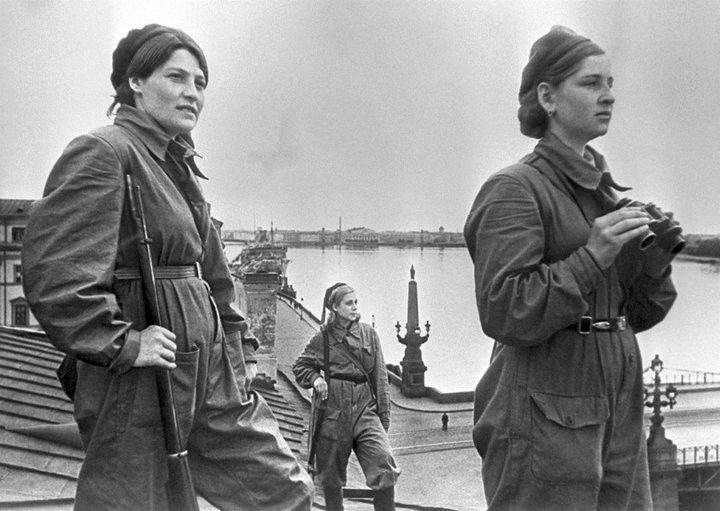
“For all the military events taking place on the railway, my students and I were anxiously watching from the school windows that went to the station,” continues Zoya Matveyevna. - There were numerous trains with our wounded soldiers. When the air attack began, everyone who could move at least somehow left the cars in a hurry. Bandages were tied up by men, some of them were walking, leaning on a crutch, while others were being carried out on stretchers. Once one of the bombs landed in a two-story water tanks. Water gushing river and flooded the entire station territory. Enemy air raids were periodic. Before the arrival of the Germans, an order was issued by the Council for Evacuation under the Council of People's Commissars of the USSR to evacuate people, industrial enterprises, cultural and scientific institutions, food supplies and raw materials to the eastern regions of the country. Our entire teaching staff was also evacuated.
On the train, she arrived in Derbent with relatives and got a job as an accountant on the railway.
- After the liberation from the Nazi invaders of the occupied territories, people gradually began to return to their native lands. I returned home, and my own sister Vera (having graduated from the ninth class) went to the front with the railway troops passing by the village. The task of these troops was to restore the destroyed railway lines. My sister reached Berlin, ”Zoya Matveyevna recalls.
As elsewhere in the country, Zverevo was working on the restoration of communications, station, houses and schools. The railway school (red building) slightly suffered from the bombing, the frame and the roof were almost intact. And the white building had to be put in order longer, because the Germans staged a stable there. Soon schooling resumed.
“These years the glory will never cease, it will never fade, the partisan detachments occupied the cities,” Zoya Matveyevna says the words from the song.
The father, wiping off a mean tear, said to his daughter: “Fight as it should be! ..”
On the revolutionary holiday 7 in November 1923, the railroad worker from the city of Zverevo of the Rostov Region Pavel Dmitrievich was doubly happy - his daughter Anna was born. Time went by. Daughter grew up. After graduating from Zverev Railway School No. 25, Anna Kuraeva entered the Taganrog School of Obstetricians - Medical Assistants, who successfully graduated in 1940 year.
Komsomolskaya Anya worked at the production practice as a nurse - midwife in a maternity hospital, helping new lives to come to light. But 1941 struck year. And the eighteen-year-old medical assistant - obstetrician Anna Kuraeva, like all doctors - was liable for military service, from the first days of the war went to the front as a nurse.
Father, an old worker depot, wiping off a male tear, said: “Fight as you should! ..” After the “quarantine” training in September 1941, Anna arrived in the city of Semikarakorsk. There was located just formed evacuation hospital number 4548. The wounded were supposed to go there in two days. Young girls - nurses turned out to be a free evening. Suddenly German bombers flew. The walls of the hospital collapsed from the blast, many nurses died. Anna miraculously survived. With horror, she looked at her pretty friends, lying motionless in blood.
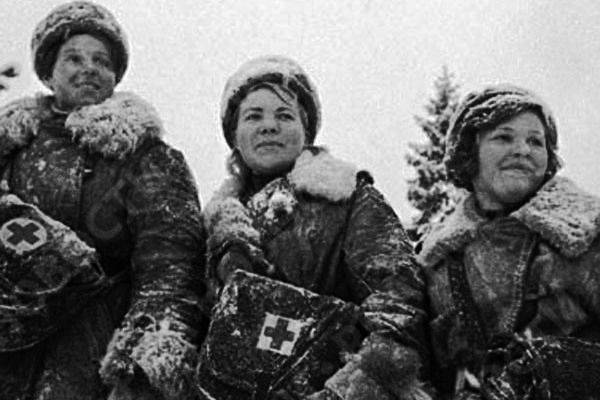
Subsequently, the medical service lieutenant Anna Kuraeva will win the girlish emotions and will perceive the war as hard work. Together with her colleagues, she takes trains with the wounded, carries moaning fighters in her arms, cares for the sick, heals them, puts them on their feet. Anna understands that soldiers wounded in fierce battles need human warmth. And sometimes the soldiers sing romances. The gentlest soprano also treated.
Evacuation hospital №4548 under the leadership of a talented doctor - the major of the medical service of Parfatsky was attached to the Separate Maritime Army of the 1-th Ukrainian Front. Following the advancing Soviet troops, Anin evacuation hospital moved as well. It was all - in the war, as in the war. She had to keep the defense together with the nurses and doctors for several hours, firing from the Germans who had broken through to the rear.
Anna Pavlovna walked thousands of kilometers along the roads of the front, “pulling out” the wounded soldiers from the “other world”, giving them a new life. Then someone gave her a bunch of wildflowers. She dried it and stored it in the front album as a symbol of spiritual purity and faith in the Victory. This amazing military herbarium Anna preserved all her life. And also - the Order of the Patriotic War, II degree, the medal "For Military Merit", "For the Defense of the Caucasus."
Evacuation military hospital number 4548 Great Victory met in Czechoslovakia - in Karlovy Vary. Until the end of 1945, he became a military sanatorium. There continued to work as a nurse, Anna Pavlovna. Now she sang more often - the fighters constantly asked her about it.
In 1946, the senior lieutenant of the medical service, Anna Kuraeva, returned to her native village Zverevo. For many years she worked in medicine. A communist and a prominent social activist, she repeatedly became a member of the village council from constituency number 12. Anna married (new surname for her husband - Yermakova), gave birth to two sons.
My mother was sitting at 1,5 kilogram of grain waste
22-year-old Kirey Rusakov left for urgent on 1939. The mother, with whom he was the only son (his father died in civilian life), Antonina's wife, expecting a child, the one-year-old son Misha, remained at home. Accompanied Kirei fun, the whole collective farm "Seven Communards", with songs and parting words - to serve honestly and return. It seemed that it would be so. But the war began.
From the first days of the battles, Kirei Zinovievich fought as part of the 67 Fist Infantry Division, which reflected, among other units, the onslaught of the fascist German armies Center and South. In one of the letters from the front, Sergeant Rusakov wrote to his relatives: "A major battle is being prepared, I may not be alive, but I will do everything to achieve a happy life for my children." By this time, Kirei Zinovievich already had a second son - Fedor.
When crossing the Dnieper because of the difficult combat situation there was a threat to the regimental flag. Sergeant Rusakov, wrapping a regimental flag around himself, swam across the river. Having reached the middle, he was wounded in the arm, but, having overcome the pain, he reached the opposite shore. Here he was overtaken by the second bullet. The wound was fatal. And went to the village of Bolshov funeral: "Sergeant KZ Rusakov in the battle for the socialist homeland, loyal to the military oath, having shown heroism and courage, was killed 13.06.43 g.".
- Details about the feat of the father's family learned from a letter from his military friend, who said that Kirei Zinovievich was buried near the village of Cherkassy Tamarovsky District, Kursk Region. For the salvation of the regimental banner, the command petitioned for the submission of KZ. Rusakov to the state award. The envelope was a clipping from the newspaper "Krasnaya Zvezda", which told about the act of my father, - says the son of a war veteran, Fyodor Rusakov, and continues the story.
- It was hard for the widow of Sergeant Rusakov, my mother Antonina Vasilyevna. In 1947, she was sentenced to eight years for a monstrous crime at the time - the theft of kg of grain waste 1,5. We had to feed the children. The punishment was not mitigated, even after the provision to the investigating authorities of a clipping from the "Red Star", in which it was told about the exploits of her husband.
- Mom served time in the Irkutsk region. My brother Mikhail and I lived with our grandmother at this time. Antonina Vasilievna died in 1997 year. “We are proud of the mother, a courageous woman and a real mother, ready to do anything to save the lives of children,” says Fedor Kireevich.
I will tell you about my father
Angelina Andronovna Sysoev, a resident of the village of Savelievsky (nee Siviakov), called me and told me that she simply wanted to tell about her father, a veteran of the Great Patriotic War, Andron Ivanovich Siviakov, who is well remembered by the old residents of the village Ryabichev (Rostov region), where in the postwar years. AND. Sivyakov headed the collective farm "Lenin's Way". I met his daughter, Angelina Andronovna, and she began her story because the memory of her father still warms her soul and helps her live.
- My father, guard senior sergeant Andron Ivanovich Sivyakov, was lucky to survive the brutal battles of the Great Patriotic War and he returned to his native village Ryabichev. All residents, young and old, came out to meet the front-line soldier. Among them are a mother, my two sisters, a brother, other relatives. I was born in 1946 year.
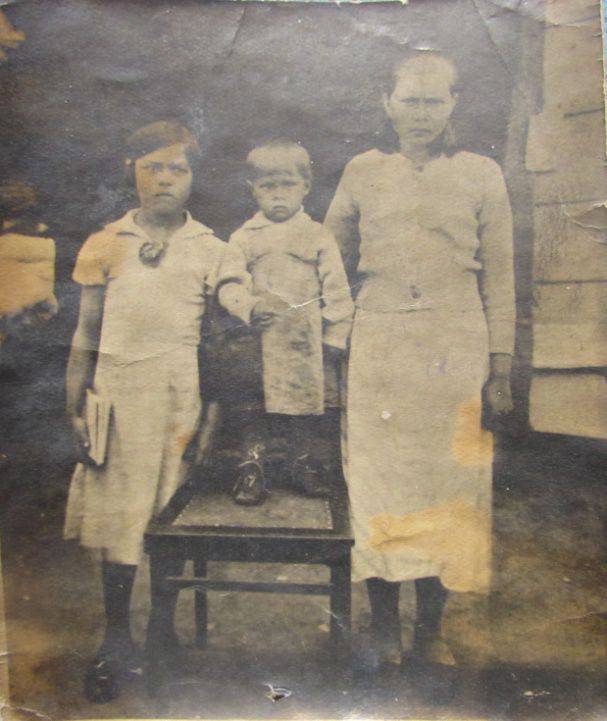
... After the revolution, the economic, industrious family of the Sivyakovs was enlisted as middle peasants, but during collectivization, among others, they voluntarily transferred their property to the collective farm and became collective farmers. My father worked on the construction of the Turkestan Canal, served an emergency, then finished courses in accountants, got married.
In June, 1941, he went to the front among the first. Until 1942, he served in the troops of the NKVD, then as a machine-gunner in a rifle unit, received a serious through wound, and was sent to hospital. After recovering, he underwent training in Nizhny Tagil and continued the war by a tanker.
"In the battle for populated areas of Tollindorf and Zelindorf in the suburbs of Berlin, Senior Sergeant Sivyakov showed courage, bravery, courage and ability to shoot perfectly. From his gun he destroyed the enemy's 2 tank, armored personnel carrier 1, to 50 enemy soldiers and officers. Comrade Siviakov is always on alert. Comrade Siviakov deserves a government award - the Order of the Red Star. " These are lines from the award list signed by the commander of the 1-th tank battalion Gulivaty.
- There are few memories of my father about the war. He said that he burned three times in tanks, but managed to escape, says his daughter.
Once, Soviet T-34 and German tanks entered the battlefield in a wheat field. The tank, in which there was a guard, senior sergeant Sivyakov, was shot down. Andron Ivanovich managed to leave the burning car and crawled. Around was the incredible thunder of guns and the clang of caterpillars. Raising his head, he saw an enemy tank moving on him, which literally a few meters away suddenly turned aside.
After the war, his father graduated from the party school, received an agronomist specialty, worked as the chairman of the collective farm "Path of Lenin" in the farm Ryabichev. He died in 1973 year. Affected frontal wounds and experienced in the war.
I will also tell you about my father
Raisa Viktorovna Mironova, a resident of the Romanovskaya stanitsa, honoring the memory of her father, a participant in the Great Patriotic War, Viktor Dmitrievich Pogromsky, carefully gathers information about his combat path.
Private Guard V.P. Pogromsky fought in the ranks of the Red Banner Chistyakovsky Infantry Division, as part of the 100-th separate Guards motorized reconnaissance company. For participation in hostilities, valor and bravery, he was awarded two Orders of Glory, Order of the Patriotic War, II degree, medals "For Courage", "For the Capture of Berlin", "For the Liberation of Prague", "For Victory over Germany". Here are just a few episodes of his front-line life, which are reflected in the award documents.
"During reconnaissance in the night from 24 on 25 in July 1944, the Red Army soldier Pogromsky, under heavy enemy fire, ensured sappers making passes in a minefield and wire obstacles. Covering the departure of comrades, in the ensuing skirmish with automatic fire and grenades, he destroyed three Nazis and removed from the battlefield wounded scout. " For this fight V.D. Pogromsky was awarded the medal "For Courage" - the most revered among the soldiers award.
“The Red Army soldier Pogromsky during the offensive from 12 January to 24 February 1945 of the year proved himself to be one of the most courageous and resourceful scouts. January 16 1945 of the year with five other intelligence officers penetrated to the rear of the enemy, where they obtained valuable information about the location and number of enemy troops. During the short anti-contact destroyed three fascists.
In a battle that the company conducted on 22 on January 1945 of the year west of Zulava, up to ten enemy soldiers were killed in a decisive fight and six were captured.
When scouts occupy the Gurau railway station, Comrade. Pogromsky was one of the first to rush into the station and in the ensuing battle he destroyed four and took five soldiers prisoner.
30 and 31 in January 1945 of the year with a group of reconnaissance aircraft, reconnoitred the safe paths of movement, led the 555 th infantry regiment and divisional rear to the area where the main forces of the division are located. In the course of this operation, several groups of Germans were destroyed. "For these actions, VD Pogromsky was awarded the Order of Glory of the III degree."
"Acting in the capture group, the Red Army soldier Pogromsky 9 on April 1945 of the year 8.00 under strong rifle and machine-gun fire crossed to the west bank of the river Neisse, one of the first to break into the trenches of the enemy, destroyed several soldiers from an assault rifle and grenades and, together with the corporal Ziplank and senior, destroyed the machine gun and the grenades and several soldiers and together with the corporal Ziplank and the senior archer. Sokolov captured the German machine-gunner, who was brought to the commander and later provided valuable information about the enemy’s disposition. " The award for this fight - the Order of Glory II degree.
And mother waited and waited.
Lyudmila Gavrikova recalls: “My father, Babin, Mikhail Yakovlevich, in 1941 was 39 years. He had a large family - six children, the eldest sister was 13 years old, and the youngest was still in the womb, I was then three years old. I remember my beloved father escorted to the front. He held me on his knees, fed me, feeding me in my mouth, and smiled so tenderly when I waved food away. A detachment of servicemen was formed in the village, which was sent to war on foot in Rostov. All the inhabitants accompanied with tears their husbands, sons to the front. We knew that at the beginning of the war the Germans seized our western frontiers and our troops retreated to the east.
Suddenly my mother brought a note from her father, in which it was reported that their division was going to Stalingrad. The train went through Tselina, but did not stop, and my father and fellow villager Nikita Khudoleev threw a note at the station. Having received her, Mom and Khudoleev’s wife, Maria Potapovna, went to Stalingrad, looking for their husbands. Found a military unit in which there were my father and uncle Nikita. The commanders of these military detachments gave the women three days of visits, then the women nevertheless returned safely home. The offensive of the German troops began to the east, which had come to Stalingrad, and the father wrote a letter to his mother, informing him that we would not surrender Stalingrad, and they were driving the German back to the west. “Dasha, take care of the children” - this was the last letter from the father.
Father got to Ukraine and was captured in 1943 year. He was held captive along with three people from our Tselinsky district, and another prisoner of war was from Peschanokopsky district. From our region there were: Peter Aleksandrovich Sidorenko (the director of the school of the farm Karl Liebknecht), a boy of 13 years from the farm Severny, a resident of the village of Peschanokopsky and my father. Father was badly wounded in both legs. The rest are walking.
The boy crawled under the barbed wire at night, begged and brought the captive pieces of food that the prisoners shared.
In 1943, the Nazi troops retreated. The camp of the prisoners was crushed. The father was probably killed during the bombing, and Sidorenko, a boy from the Severny hamlet and a resident of the village of Peschanokopskoye, returned from the war, informing his mother that they were in captivity with my father and urged her that her father would return. Wait. And my mother waited and waited. But, alas, it didn’t wait, they brought a notice from the military registration and enlistment office that Mikhail Yakovlevich Babin was credited as missing. ”
How many tears have been shed by those widows, children that were left without husbands and fathers! How much they had to work to restore the economy destroyed by the war and build a new one! And the older generation of Soviet people coped with the difficult period of those distant post-war years, restoring factories, factories, railways, train stations, stadiums, houses of culture, schools, hospitals, cultivating bread, and getting high yields.
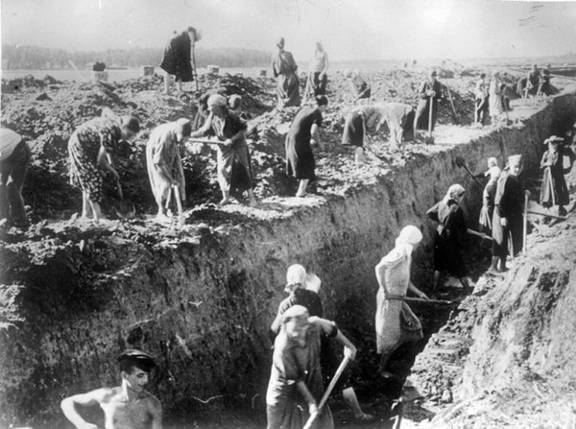
... Talking about past years, none of the women complained about their miserable fate. They did not moan over their trials. They were and remain real Russian women. Strengths of spirit which can and should be learned. And me too.
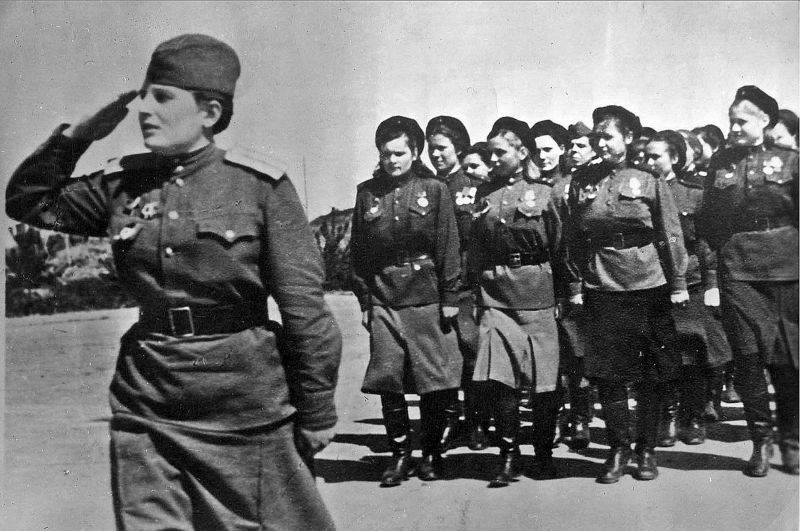
Information